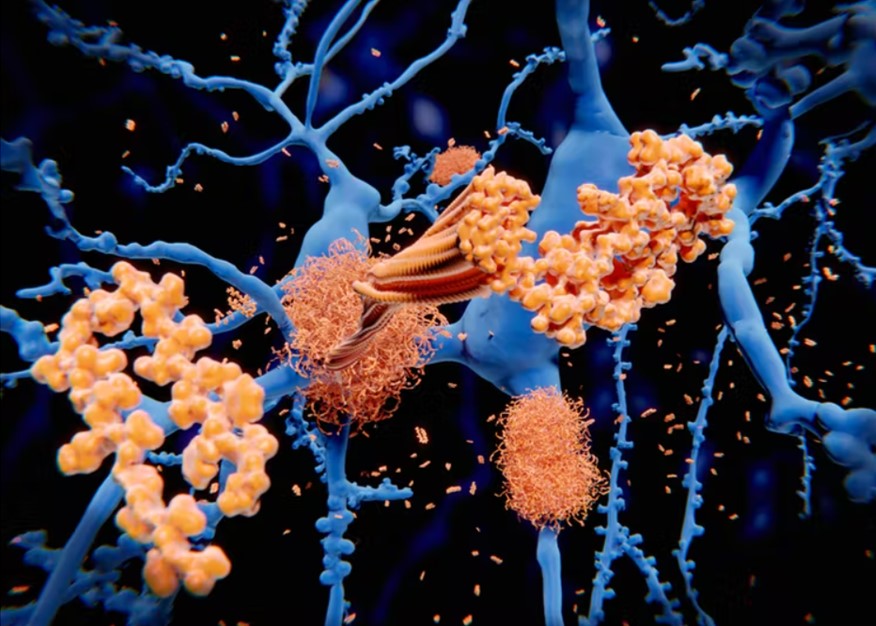
Beta-amyloid plaques (orange) clumping around brain cells (blue). Science Photo Library/Alamy Stock Photo
June is Alzheimer’s and Brain awareness month – it is a time when we all work together to bring more awareness to the detrimental cognitive decline often associated with Alzheimer’s Disease patients. Alzheimer’s is the most common form of dementia, with research showing that it is associated with an excessive build-up of protein clumps (plaque) in the brain.
Scientists in Israel have shown that a type of oxygen therapy can stop new plaques forming and even remove existing plaques in mice with Alzheimer’s. The scientists used a mouse model of Alzheimer’s disease called 5xFAD. The genetically modified mice were treated with hyperbaric oxygen therapy to see if they could halt or slow the disease progression.
In Alzheimer’s disease patients, HBOT has been proven to improve blood flow to the brain, thus nourishing brain cells that would otherwise be deprived of blood and oxygen.
The scientists, from the University of Tel Aviv, treated 15 six-month-old mice (about 30 human years) with hyperbaric oxygen therapy for an hour a day, five days a week for four weeks. The therapy not only reduced the number and size of plaques in the brains of the mice, it also slowed the formation of new plaques, compared with a control group of mice who did not receive hyperbaric oxygen therapy.
This study revealed that the mice receiving oxygen therapy showed increased blood flow to the brain. The extra blood flow provided the brain with increased oxygen that helped to eliminate the buildup of plaques and reduces inflammation.
By improving blood flow to the brain, reducing plaque levels and reducing hypoxia, the mice undergoing daily oxygen therapy began to show improvements to their cognitive abilities, such as their spatial recognition memory as well as contextual memory – the ability to remember emotional, social, spatial or temporal circumstances related to an event.
This particular research then implemented these findings to assess hyperbaric oxygen therapy (HBOT) in 6 people with cognitive decline (over the age of 65). The results were impressive, as the researchers discovered that 60 sessions of HBOT, over a 90 day period, increased blood flow in the brain and provided the patients with improved cognitive abilities – information processing speed, memory, and attention.
Ultimately the study revealed the first time that something non-drug related was proven effective in the scientific world to prevent the core biological processes that are responsible for Alzheimer’s development.
“I don’t think this can ‘cure’ Alzheimer’s in humans,” Professor Uri Ashery, lead author of the research, told The Times of Israel, “but it may be able to significantly slow its progression and severity.”
Read more at THE CONVERSATION
